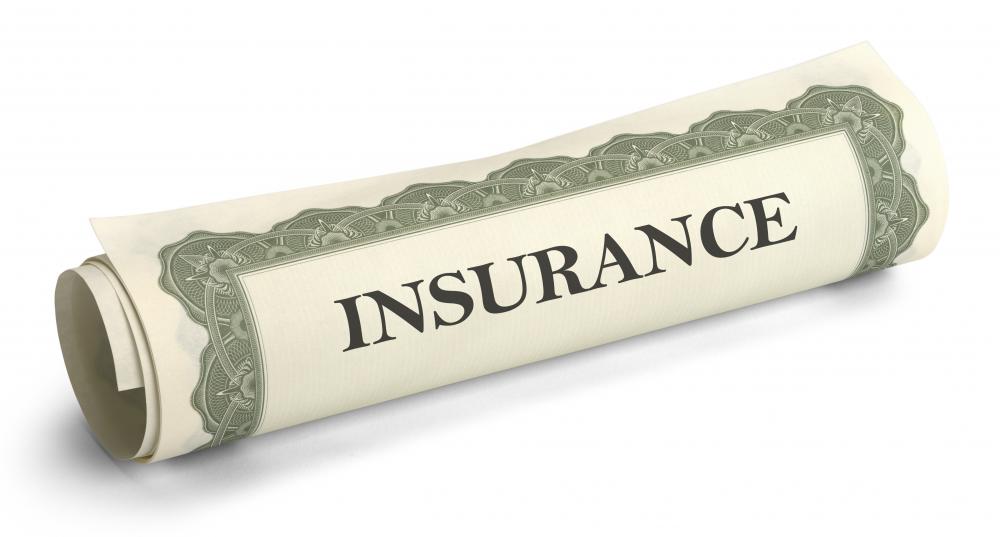At WiseGEEK, we're committed to delivering accurate, trustworthy information. Our expert-authored content is rigorously fact-checked and sourced from credible authorities. Discover how we uphold the highest standards in providing you with reliable knowledge.
What is Credit Insurance?
Credit insurance is a form of protection that pays out in the event that the policy holder, whether an individual or a business, is unable to pay on outstanding debt due to any incident that is covered in the terms of the policy. Common factors that can be covered include the loss of a job, the death of the insured party, or an accident that disables the policyholder. The protection against losses that is provided by this insurance is beneficial to both the debtor and the lender. For the debtor, there is the peace of mind that any debts that are currently outstanding will be settled. At the same time, the lender is assured of receiving payment in full, even if the debtor should die.
In a business setting, credit insurance can provide protection against major problems with accounts receivable. In the event that a client goes into bankruptcy and the unpaid items meet the terms of the insurance, the insured party can seek recovery through the third party underwriter. The degree of protection will vary, however, and often, there are limits to the amount of coverage that may be obtained. These usually have to do with regulations that are in effect in the country of jurisdiction.

It is important to note that credit insurance generally only covers unpaid debt that is current. This means that any debts that are already in arrears at the time of filing may not be eligible for coverage. At the same time, any debts incurred after the filing are rarely covered under the terms of the policy.
Many lenders offer the option of taking out this form of insurance and bundling the cost into the monthly installment payments. In some jurisdictions, lenders are required by law to offer coverage at the time the loan is extended. Borrowers are not necessarily required to purchase the insurance offered by the lender, however, and they can also buy coverage independently.
AS FEATURED ON:
AS FEATURED ON:











Discussion Comments
@ Submariner- The estate is the primary party responsible for the debt of the person who dies. If the estate goes into probate, then an executor is responsible for determining which debts are to be paid first. If there is no money left to pay credit card debt, then the credit card company must suck it up, and write off the debt.
@ Submariner- There are three important factors to consider when determining the responsibility of debt after a death: 1) if the spouse was a co-signor, 2) if the souse was an authorized user, and 3) if the deceased lived in a community property state.
If the spouse was a co-signor, then he or she is responsible for any unpaid debt on the account. If the spouse was only an authorized user on the account, then he or she is not responsible for any portion of the debt. If the spouse resides in a community property state (Arizona, Alaska, California, Idaho, Louisiana, Nevada, New Mexico, Texas, Washington or Wisconsin), then legal advice is probably necessary. Debt cannot be passed on to friends, family or relatives so excluding these few circumstances, debt is settled by the estate, and if the estate does not have enough, it is forgiven by law.
What happens to a person's credit card debt when they die? Is it automatically passed to the spouse, even if they were not on the account? Is credit risk insurance included with credit cards?
Post your comments